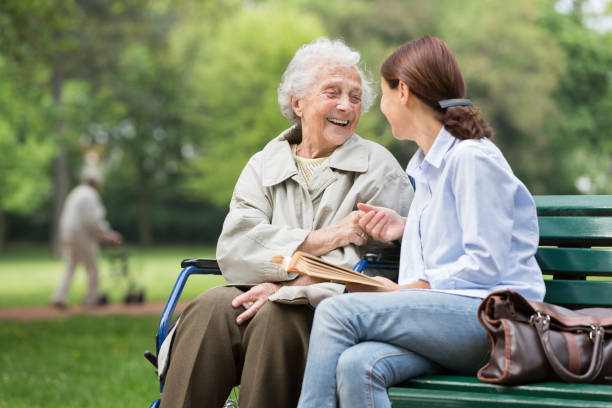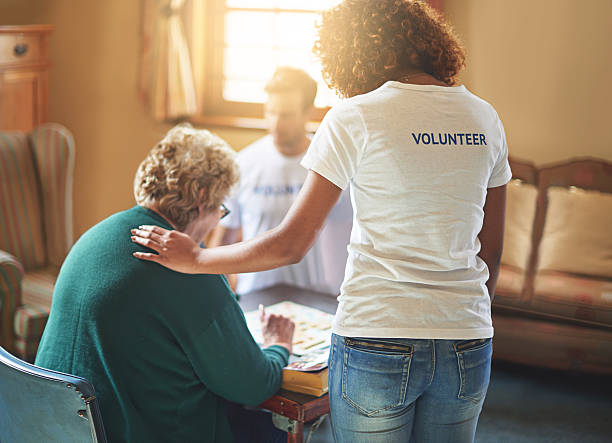The Role of The Volunteer in Private Nursing: Enhancing Care and Building Connections
Private nursing, also known as home healthcare, provides personalized care to individuals in the comfort of their own homes. While professional caregivers play a vital role in delivering healthcare services, the involvement of volunteers can greatly enhance the quality of care and overall experience for patients. In this blog post, we will explore the role of the volunteer in private nursing and how their contributions can positively impact the lives of patients and caregivers.
1.Companionship and Emotional Support

Volunteers in private nursing provide valuable companionship and emotional support to patients. The role of a volunteer goes beyond medical assistance, focusing on building connections and fostering a sense of community. Some key benefits of their involvement include:
a. Alleviating Loneliness: Homebound individuals receiving private nursing care may experience feelings of isolation and loneliness. Volunteers can offer social interaction, engage in conversations, and provide companionship, helping to combat these feelings and improve the overall well-being of patients.
b. Emotional Connection: Volunteers often develop meaningful relationships with patients, becoming a source of emotional support. They offer a listening ear, empathy, and understanding, enhancing the patient’s emotional resilience and reducing stress and anxiety.
2.Assisting with Activities of Daily Living

Volunteers can assist with various activities of daily living (ADLs) to enhance the quality of life for patients. These activities may include:
a. Personal Care Assistance: Volunteers can help patients with tasks such as grooming, dressing, or bathing. This support not only provides practical assistance but also promotes dignity and self-esteem for individuals who may struggle with these activities.
b. Meal Preparation and Nutrition: Volunteers can assist with meal planning, grocery shopping, and meal preparation, ensuring that patients have access to nutritious and balanced meals. This support plays a crucial role in maintaining their health and well-being.
c. Light Housekeeping: Volunteers may also help with light housekeeping tasks, such as tidying up, doing laundry, or organizing living spaces. This assistance contributes to a clean and comfortable environment for patients and supports their overall sense of well-being.
3.Social Engagement and Recreational Activities

Volunteers can organize and facilitate social and recreational activities to promote engagement and enhance the overall quality of life for patients. These activities may include:
a. Organizing Outings: Volunteers can coordinate outings or arrange transportation for patients to participate in community events, visit local attractions, or enjoy recreational activities. This not only promotes social engagement but also helps patients maintain a connection with their communities.
b. Group Activities: Volunteers can organize group activities, such as game nights, book clubs, or arts and crafts sessions, to encourage social interaction among patients. These activities provide opportunities for patients to connect, share experiences, and form friendships.
4.Support for Caregivers

Volunteers can also provide support to caregivers, who often bear the responsibility of providing continuous care to patients. Their contributions include:
a. Respite Care: Volunteers can offer respite care, giving caregivers much-needed breaks from their caregiving responsibilities. This respite allows caregivers to take care of their own well-being, reducing burnout and promoting their ability to provide high-quality care.
b. Emotional Support for Caregivers: Volunteers can serve as a source of emotional support for caregivers, providing a listening ear, offering encouragement, and sharing experiences. This support helps caregivers navigate the challenges they face and fosters a sense of solidarity within the caregiving community.
5.Building Bridges within the Community

Volunteers in private nursing play a crucial role in building bridges between patients, caregivers, and the wider community. Their involvement:
a. Raises Awareness: By volunteering in private nursing, individuals in the community become more aware of the challenges faced by patients and caregivers. This increased awareness can lead to a better understanding of the importance of home healthcare and support for its initiatives.
b. Encourages Community Engagement: Volunteers can engage with local organizations, businesses, and community members to garner support for private nursing programs. This collaboration creates a network of resources, services, and opportunities that can benefit patients and caregivers.
Conclusion
Volunteers play a vital role in private nursing, providing companionship, emotional support, assistance with daily activities, organizing social engagement, and offering respite care for caregivers. Their involvement enriches the lives of patients, enhances the quality of care provided, and builds bridges within the community. By recognizing the valuable contributions of volunteers, we can create a more holistic and supportive environment for individuals receiving private nursing care. The dedication and compassion of these volunteers truly make a difference in the lives of those they serve.
